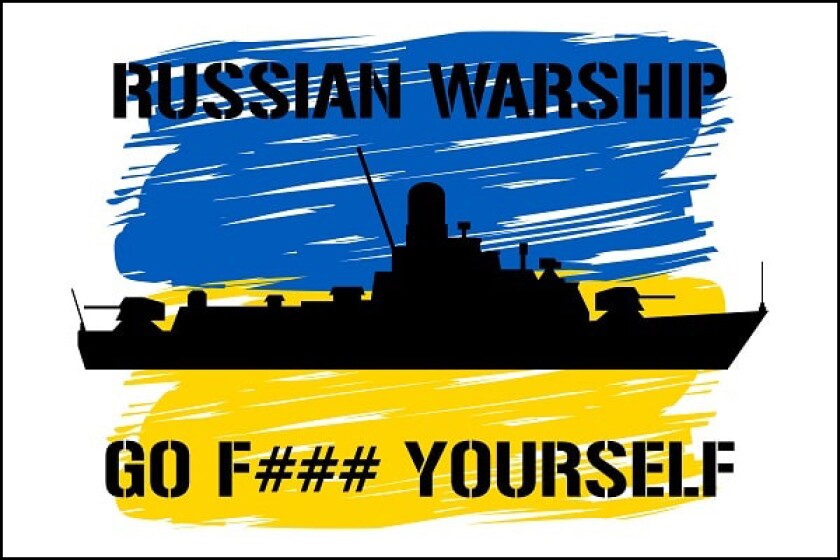The applicant behind an EU trademark application for the phrase 'Russian warship, go fuck yourself' has appealed against the EUIPO’s decision to reject the filing in December, Managing IP can reveal.
Legal representatives for the Administration of the State Border Guard Service of Ukraine filed an appeal on Tuesday, February 21.
The administration’s representatives, Brussels-based law firm Bukovnik & Kulbaba IP Guardians, said the rejection decision was groundless and that they planned to take their appeal as far as necessary.
“The decision says people would consider the mark to be immoral, but there is no evidence as to why,” said Taras Kulbaba, a partner at the firm.
“The examiner also said there is no evidence that mark has a positive message but does not explain why.”
Official grounds for the appeal must be submitted by April 23.
The EUTM application was filed in March last year, shortly after Russia’s invasion of Ukraine. It was closely watched as an example of how the EUIPO would handle issues of morality.
Products launched using the mark, which sought to cover goods including merchandise and clothes, would have been used to encourage donations to Ukraine.
At first, the application was filed under the name Roman Hrybov, which is the Ukrainian version of Roman Gribov, the soldier who first uttered the phrase.
In June, ownership of the mark was transferred to the State Border Guard Service, the body tasked with policing Ukraine’s borders.
The application was a homage to Gribov’s parting call to an advancing Russian warship before he and other soldiers were captured and detained last February.
The phrase went viral on social media soon after and became a symbol of defiance in support of Ukraine.
But unlike other EUTMs filed in a similar vein, such as 'Je suis Charlie' and 'I can't breathe', this one had an extra hurdle to clear: its use of a swear word increased the chances of it being refused on morality grounds.
However, some practitioners held the view that – in the EU at least – the phrase would not be considered immoral due to Europe’s support for Ukraine.
Tomorrow, February 24, marks exactly one year since Russia invaded Ukraine.











